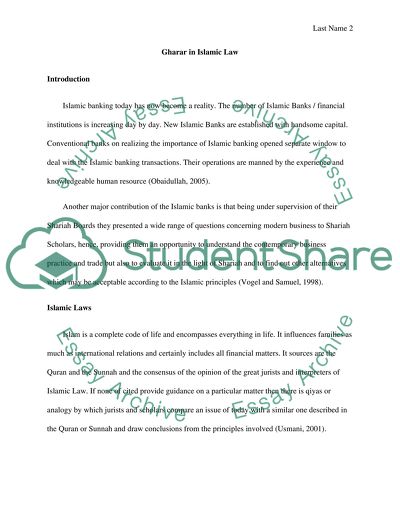Cite this document
(“Gharar in Islamic Law Assignment Example | Topics and Well Written Essays - 2250 words”, n.d.)
Gharar in Islamic Law Assignment Example | Topics and Well Written Essays - 2250 words. Retrieved from https://studentshare.org/law/1441125-gharar-in-islamic-law
Gharar in Islamic Law Assignment Example | Topics and Well Written Essays - 2250 words. Retrieved from https://studentshare.org/law/1441125-gharar-in-islamic-law
(Gharar in Islamic Law Assignment Example | Topics and Well Written Essays - 2250 Words)
Gharar in Islamic Law Assignment Example | Topics and Well Written Essays - 2250 Words. https://studentshare.org/law/1441125-gharar-in-islamic-law.
Gharar in Islamic Law Assignment Example | Topics and Well Written Essays - 2250 Words. https://studentshare.org/law/1441125-gharar-in-islamic-law.
“Gharar in Islamic Law Assignment Example | Topics and Well Written Essays - 2250 Words”, n.d. https://studentshare.org/law/1441125-gharar-in-islamic-law.


